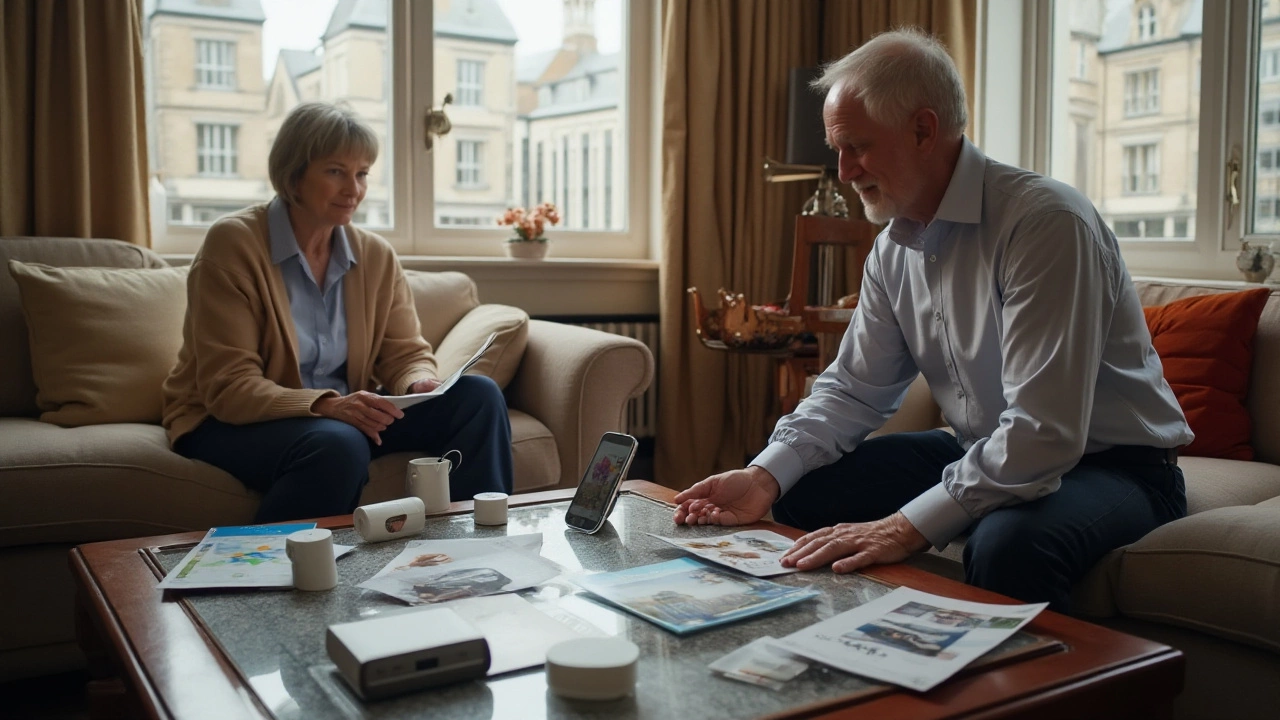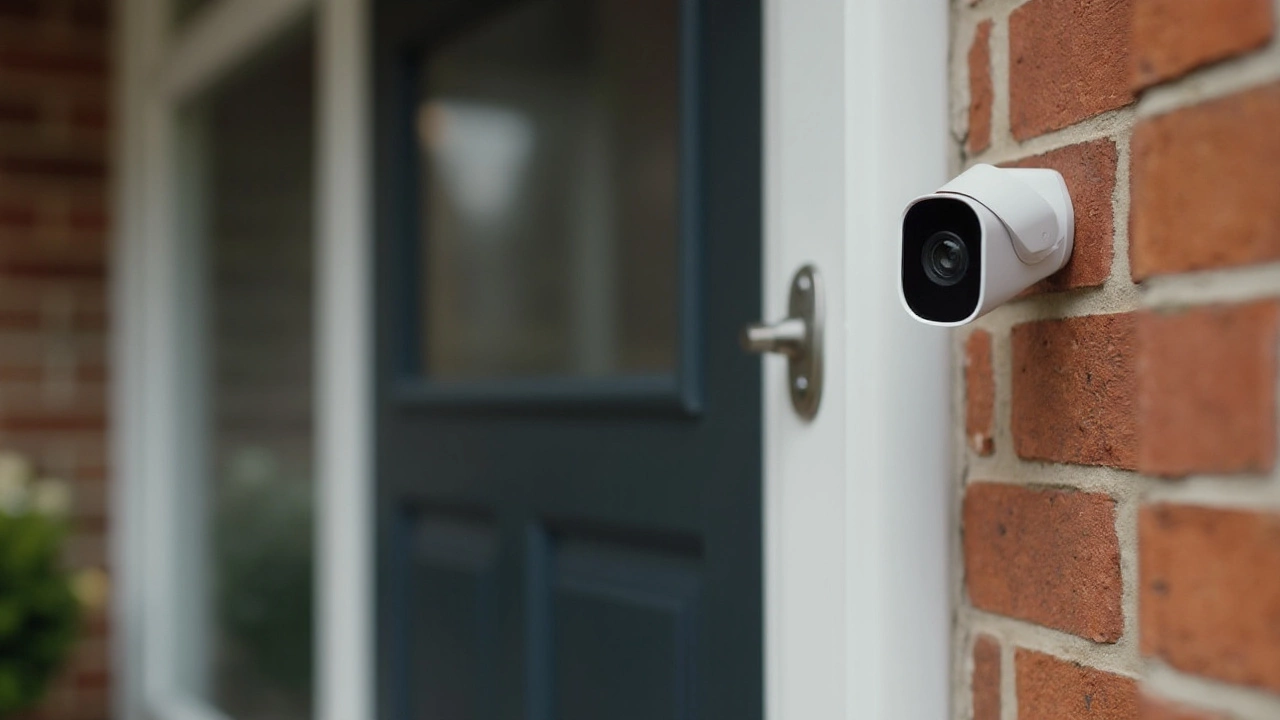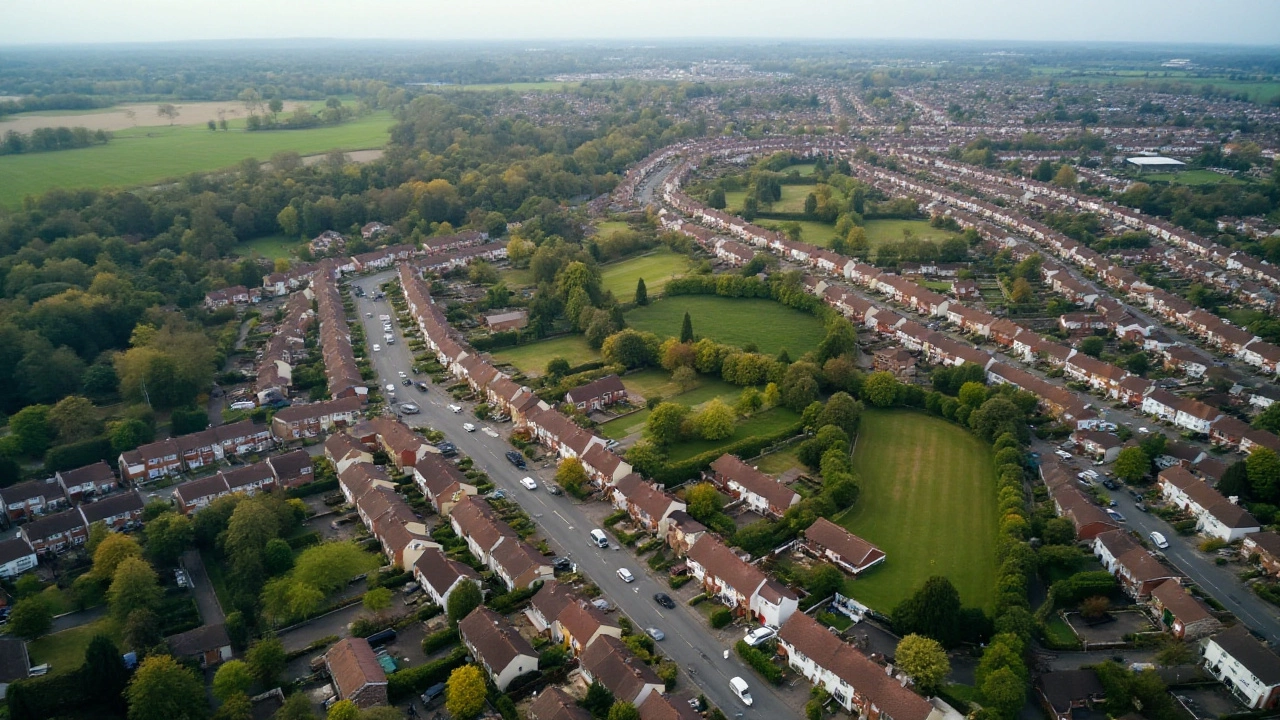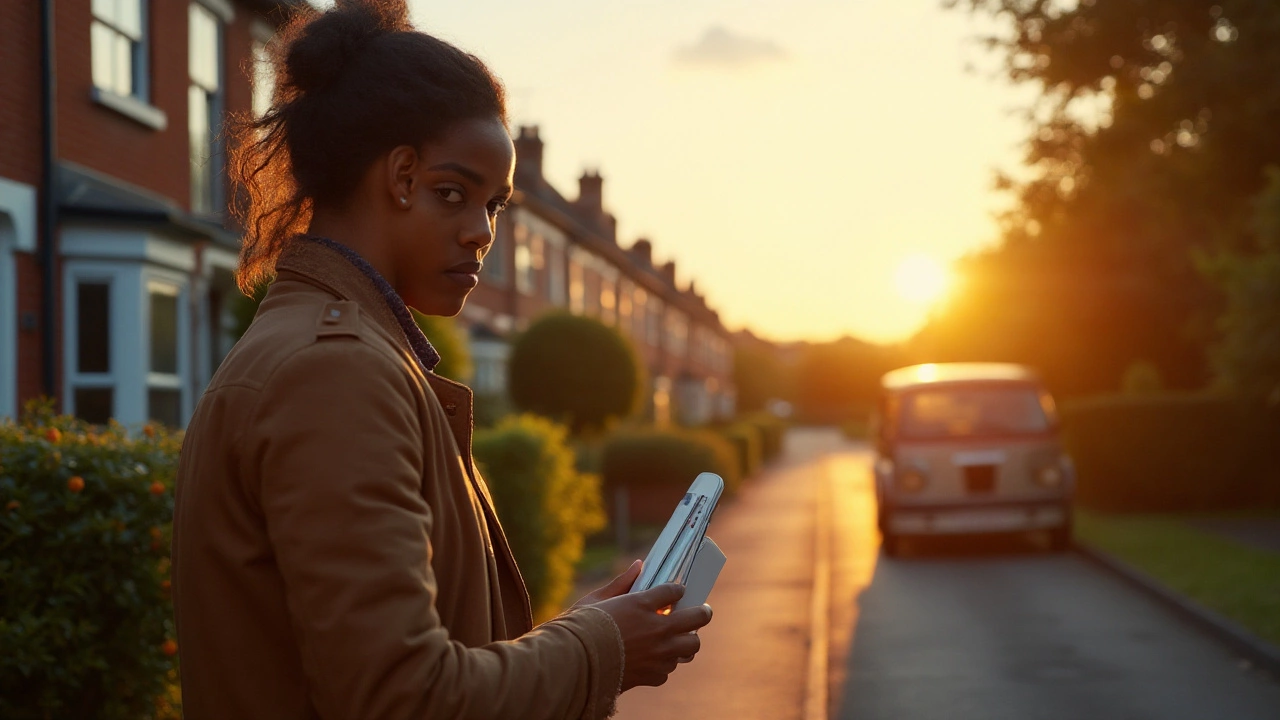Deciding on the best method to secure your home is more crucial than ever, with different technologies evolving at lightning speed. Homeowners face an enticing decision: opt for a full-fledged security system or rely on security cameras. Both avenues promise peace of mind, yet each stands under a different spotlight when examined closely.
This isn't just about a few bells and whistles; it's about safety, control, and peace in association with modern technology. Dive with us into the depths of security systems versus cameras, as we explore the options available to ensure your home's protection. You might just find yourself surprised at what each has to offer and how they can be uniquely suited to your lifestyle needs.
- Understanding Security Systems
- Advantages of Security Cameras
- Comparing Features and Costs
- Making the Right Choice for Your Home
Understanding Security Systems
Having a profound grasp of security systems is key to ensuring your home is safeguarded effectively. These systems go beyond the conventional locks and keys, orchestrating a wide range of technologies to protect your residence. Typically, they integrate various components like sensors, alarms, control panels, and sometimes even professional monitoring. All these pieces work together harmoniously to form what we recognize as home security systems. The primary objective is to detect unauthorized entry or breaches, sending alerts in real-time to prevent potential threats. With a control panel serving as the brain, you can program, monitor, and interact with different parts of the system seamlessly.
One major aspect that sets home security systems apart is their connectivity to professional monitoring services. This means that a vigilant team is always ready to respond to any suspicious activity. The integration of modern technology has further enhanced the functionality of these systems with smartphone applications, making it possible to arm or disarm alarms remotely or even receive notifications directly to your device. Some systems are sophisticated enough to integrate with other smart home devices, providing a cohesive network at your fingertips. The beauty of these advanced systems is that you can customize them to suit your preferences, enhancing your home’s security while fitting comfortably into your lifestyle.
Security systems have been proven effective time and again. The Electronic Security Association notes that homes without security systems are more likely to be targeted by burglars, emphasizing a significant deterrent effect. Many people envision these systems as expensive and complicated; however, modern solutions offer scalable options that align with various budgets. From DIY setups to fully-fledged professional installations, there’s a wide band of choices available. The initial cost might be an investment, but the peace of mind and the probable reduction in insurance premiums often justify the expenditure.
Looking at the stats, a study revealed that homes equipped with security systems experience 300% fewer break-ins than those without. This is quite substantial and reflects the efficacy these systems can have when properly implemented. It’s intriguing to note how technology has evolved to enhance these systems considerably. Today, AI-powered cameras and sensors not only detect movement but can also distinguish between different types of motion, reducing false alarms that pets often trigger. The shift towards more intelligent systems is making them more user-friendly and reliable than ever.
It's also vital to engage with credible sources when assembling your security system. Reputable providers offer not just equipment but also maintenance, updates, and customer support. This holistic approach ensures that the system remains functional and up-to-date, adapting to new threats as they arise.
Security is not a product but a process, as Bruce Schneier once said, emphasizing the need for ongoing diligence rather than merely relying on technology.With this understanding in mind, taking proactive steps to engage with the latest security innovations is as imperative as implementing the hardware itself. As lifestyle needs shift, so too should the strategies we employ to protect our homes.

Advantages of Security Cameras
Security cameras have become an integral part of modern home security systems, playing a pivotal role in helping homeowners keep an eye on their surroundings. These devices provide more than just an extra layer of security; they offer a reassuring presence that can often deter potential intruders before they even approach your property. A camera prominently installed and clearly visible can act as a psychological barrier for trespassers, making them think twice. Beyond deterrence, the ability to monitor your home in real time, even from thousands of miles away, offers peace of mind that is hard to quantify. With advancements in technology, many cameras now come equipped with features like motion detection, night vision, and even the ability to send alerts right to your device, ensuring you're always in tune with what's happening on your property.
One of the most appealing aspects of security cameras is their flexibility and ease of installation. Unlike traditional security systems, which might involve substantial setup processes, cameras can often be installed within minutes, making them an attractive option for those who are not particularly tech-savvy. Whether wireless or wired, they offer myriad installation possibilities, catering to different areas of concern, be it the driveway, the backyard, or the interior of your home. Moreover, they offer scalability, allowing homeowners to start small and expand their surveillance scope as needed without significant hassle or cost. Some systems even offer integration capabilities, letting you sync your cameras with voice assistants or smart home setups for a truly seamless experience.
The scope of security cameras is not limited to preventing break-ins alone. They can be invaluable tools for everyday monitoring and safety. For parents, these cameras can track when children return from school or ensure babysitters are following household rules. Pet owners can keep track of their furry friends' antics while away at work. And, equipped with features such as two-way audio, these cameras also allow for direct communication, which can be beneficial in various scenarios. According to a review by the International Foundation for Protection Officers, homes with visible surveillance cameras are 60% less likely to be targeted by burglars than those without such measures. In a world where busy schedules often keep us from home, having eyes on the property ensures unexpected events, from weather damage to trespassing, are promptly addressed, preventing costly aftermaths.
In some cases, security cameras bring an unexpected advantage: community safety. By covering exterior spaces visible from the street, these cameras not only protect individual homes but also contribute to neighborhood security by recording suspicious external activity which could be crucial in police investigations. Many communities have reported lower crime rates when a network of domestic cameras is present, as shared footage helps authorities piece together criminal activities. This interactive aspect fosters a sense of community, transforming these technological tools from mere vigilance devices into enablers of communal trust and support. Moreover, through remote access and cloud storage, vital images and footage are preserved, facilitating prompt action in urgent scenarios.
The affordability and variety of options available today mean that virtually any homeowner can find a solution that fits their budget and needs, from basic models meant to simply monitor and record to advanced units capable of identifying individual faces and registering license plates. As technology advances, the capabilities of these cameras will likely continue to expand, offering more options and features that reframe our approach to domestic security. While the choice between a full-fledged security system and security cameras remains a personal one, the clear and immediate advantages of cameras make them a robust option for homeowners seeking peace of mind and protection.

Comparing Features and Costs
When it comes to deciding between security systems and security cameras, many factors come into play, especially features and costs. Each provides distinct capabilities that can change the game in how safely you choose to guard your home. Security systems often come packed with several components, offering a comprehensive approach to protection. These systems usually include alarms, motion detectors, window and door sensors, and sometimes, integrated cameras. With this integration, you’re not just monitoring but also deterring incidents, as alarms can notify authorities, leading to swift responses. In the technological juggernaut era, many systems now provide smart integrations with IoT devices, allowing you to control them via voice assistants, providing real-time notifications directly on your device.
In contrast, standalone security cameras might seem simpler, yet they serve a vital role with unique benefits of their own. Many of today’s cameras boast features like night vision, motion activation, and two-way audio. These features make cameras especially useful for keeping an eye on deliveries or monitoring who approaches your house while you’re away. Whereas traditional CCTV setups required intricate installations and constant monitoring, the latest wireless variants offer ease of installation and flexibility, as these cameras can be placed virtually anywhere and moved with relative ease.
According to a recent report by Consumer Reports, security cameras linked to smart home systems often provide more 'bang for your buck' by granting personalized alerts and the ability to interact with visitors remotely.
Breaking Down the Costs
Weighing the costs between these two options reveals a significant difference. A fully fledged home security system typically involves upfront equipment costs, potential installation fees, and monthly monitoring fees if you choose a professional service. These can sum up quickly, and before you know it, you're looking at hundreds if not thousands annually, depending on the service provider and package chosen. On the other hand, security cameras often entail lower initial costs as they can be purchased individually. While professional-grade cameras can be pricey, budget-friendly alternatives provide a decent level of peace of mind without breaking the bank. The lack of recurring fees makes them a more attractive option for those looking to avoid long-term contracts. However, both options might require storage solutions, whether it be cloud-based for cameras or third-party monitoring for comprehensive systems, so the overall expenditure can still vary widely based on personal preference and necessity.
For the savvy customer considering all aspects, creating a table might provide clarity:
| Feature | Security System | Security Cameras |
|---|---|---|
| Equipment Cost | Moderate to High | Low to High |
| Installation | Professional (Often Required) | DIY-Friendly |
| Monitoring Fees | Typically Monthly | Usually None |
| Flexibility | More Limited | Highly Flexible |
Decisions about these features come down to balancing personal priority for features against budget constraints. Whether you are prioritizing advanced features or working within a tighter budget, understanding these facets allows you to choose either a comprehensive security system or a series of standalone security cameras to meet your needs effectively.

Making the Right Choice for Your Home
When it comes to choosing between a comprehensive security system or standalone security cameras, it all boils down to what suits the unique security needs and budgetary considerations of your household. Start by evaluating the primary concerns in your neighborhood. In areas with a lower crime rate, a well-placed camera might act as a sufficient deterrent. However, for neighborhoods with a higher incidence of break-ins, investing in a full-scale security system could prove more effective. Remember, every home and family is different, so tailoring your security approach can be far more effective than a one-size-fits-all solution.
An essential factor to consider is the technology and integration levels of these security solutions. Full security systems frequently include advanced features like motion sensors, alarms, and company-backed monitoring that directly informs emergency responders. This kind of professional monitoring can be crucial when you’re seeking peace of mind. On the other hand, security cameras today boast features like high-definition resolution, night vision, and even AI technology that can differentiate between people, animals, and vehicles. According to some reports, homes with cameras are 300% less likely to be broken into. These cameras, especially the modern wireless ones, can be easily relocated, giving you flexibility as your monitoring needs change.
According to a statement by the National Council for Home Safety and Security, "Homes without a security system are up to 300% more likely to be broken into." While this emphasizes the importance of a security system, the presence of cameras can often provide the essential deterrence.
Cost is always a deciding factor in how we spend our hard-earned money, particularly on security. Full security systems can seem expensive initially, with costs related to installation and subscription monitoring services. Yet, the long-term benefits and potential insurance discounts can sometimes offset these costs. Conversely, modern security cameras offer a range of budget options, from ultra-affordable basic models to more sophisticated setups with app connectivity, providing versatile monitoring right from your smartphone.
Take into account the compatibility and ease of use of these systems with your lifestyle and other smart devices. Some security systems integrate seamlessly into smart-home setups, allowing you to control lights, thermostats, and more from a single app, increasing convenience and security at once. On the flip side, standalone cameras provide opportunities for DIY security solutions, which can be particularly appealing if you have the technical know-how or enjoy tech-related projects.
Ultimately, the decision between security systems and cameras rests upon your personal preferences, risk level, and financial considerations. Start small if you're unsure and add as your understanding of your home's security needs grows. Investing in reliable home protection not only safeguards belongings but also offers the invaluable peace of mind that is essential in today's world.

